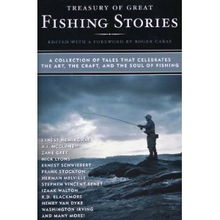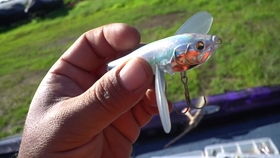Content:
Introduction: Fishing is a popular outdoor activity that allows people to relax, unwind, and enjoy the beauty of nature. Whether you are a seasoned angler or a beginner, there are certain tips and tricks that can help you improve your fishing skills. In this article, we will discuss essential fishing techniques for out-of-towners who want to fish like a pro.
Research the Location: Before heading out on your fishing adventure, it is crucial to research the location you plan to fish. Familiarize yourself with the local fish species, their feeding habits, and the best spots to catch them. You can find this information by reading online forums, contacting local fishing guides, or consulting a local fishing guidebook.
Choose the Right Equipment: Selecting the appropriate fishing gear is essential for a successful fishing trip. Here are some key pieces of equipment to consider:
a. Rod and Reel: Choose a rod and reel that match the type of fish you are targeting. A lightweight spinning rod and reel are suitable for panfish and smallmouth bass, while a heavier baitcasting rod and reel are better for larger species like trout and pike.

b. Lures and Baits: Invest in a variety of lures and baits that are effective for the fish you want to catch. Soft plastics, spinners, jigs, and live bait are all great options. Don't forget to bring extra lures, hooks, and line in case you lose any during your fishing trip.
c. Tackle Box: A well-stocked tackle box should contain tools such as pliers, a knife, scissors, needle-nose pliers, and a pair of forceps. These tools will help you with knot-tying, removing hooks, and handling fish.
Learn the Basics of Knot-Tying: A solid knot is crucial for a successful fishing trip. Familiarize yourself with a few basic knots, such as the improved clinch knot, the palomar knot, and the uni knot. These knots will help you attach your lure or bait to the line securely and reduce the chances of your catch escaping.
Master the Art of Casting: Casting is a fundamental skill that every angler should master. Practice casting in open spaces to get a feel for the technique. Focus on casting with a smooth, controlled motion and learn to adjust your cast to account for wind and distance.
Read the Water: Understanding the water's behavior is crucial for a successful fishing trip. Look for areas where fish are likely to congregate, such as rock structures, weed beds, and fallen trees. Pay attention to water currents, depth, and clarity, as these factors can influence fish behavior.
Be Patient and Observant: Fishing requires patience and attention to detail. Take your time to observe the water and the behavior of the fish. Look for signs of fish activity, such as surface disturbance or bubbles, and adjust your tactics accordingly.
Practice Catch and Release: If you are fishing in a catch-and-release area, it is essential to practice catch-and-release techniques to preserve the fish population. Use a dehooking tool or your fingers to gently remove the hook, and be mindful of the fish's welfare during the release process.
Stay Informed: Keep yourself updated on local fishing regulations, such as size and bag limits, as well as any seasonal restrictions. This information can be found on government websites, fishing guidebooks, or by consulting local fishing authorities.
Conclusion: Fishing can be a rewarding and enjoyable experience for out-of-towners who are willing to learn and practice. By following these essential tips, you can improve your fishing skills and increase your chances of catching fish like a pro. Remember to always respect the environment and practice catch-and-release whenever possible. Happy fishing!












